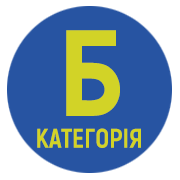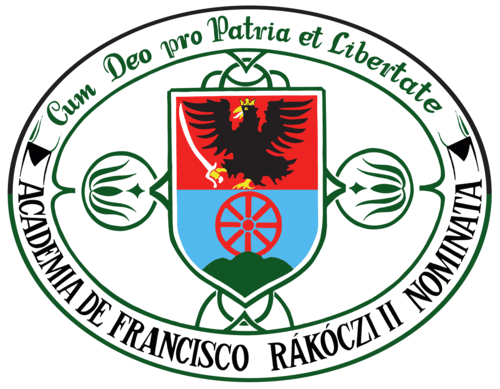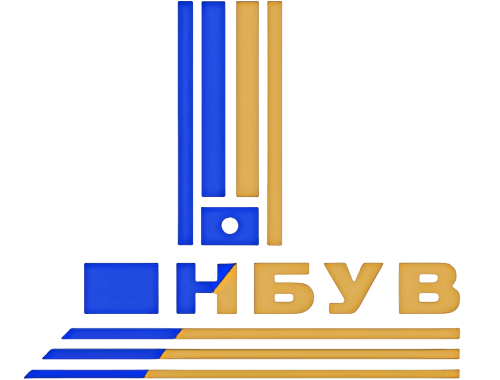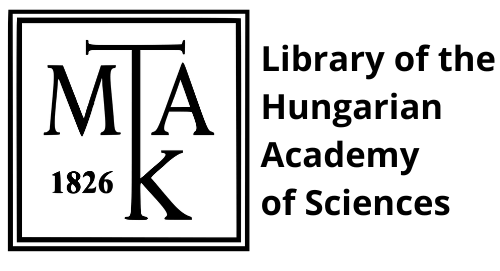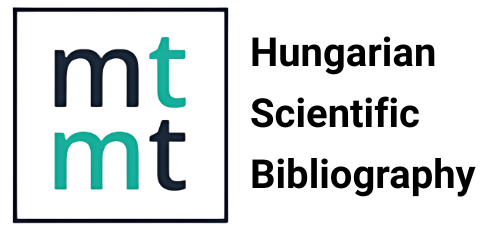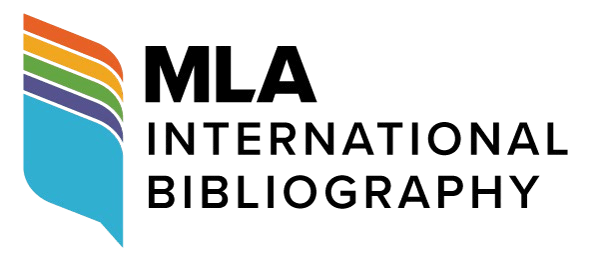Specific features of the language usage and linguistic expression of internally displaced people from Ukraine living in Hungary
DOI:
https://doi.org/10.58423/2786-6726/2024-2-30-52Keywords:
refugees from Ukraine, Russo–Ukrainian war, Hungary, language usage, language attitudesAbstract
The armed conflict in eastern Ukraine since 2014 has escalated into the Russo–Ukrainian war that broke out on February 24, 2022, leading millions of Ukrainian citizens to decide about leaving the country and seeking temporary and, in many cases, permanent shelter abroad, including in Hungary. The threat to their existence posed by the military actions, the general mobilisation of men aged 18–60, and the economic downturn have led to a significant increase in the number of Ukrainian citizens leaving their homeland behind. At the same time, it is also important to highlight that the mobilisation law banned men of military age from leaving the country as of February 25, 2022, so that men who left the Eastern Ukraine region have predominantly found temporary shelter in the Western part of the country, including in Transcarpathia. At the same time, many men who were not obliged to mobilise because of a medical condition (e.g., disability) or family status (e.g., having at least three children) and who still had the right to leave the country also decided to go abroad. Their numbers are, of course, negligible compared to the number of women and children, who have left Ukraine.
On the basis of the results of an online questionnaire survey conducted among internally displaced Ukrainians currently residing in Hungary, the paper aims to show how the Russian and Ukrainian native speakers of the data, having been exposed to a language environment with which they are completely unfamiliar, have developed language usage strategies and attitudes towards their mother tongue, Hungarian, and the various intermediary languages used during everyday communication.
In the first part of the work, the migration processes that developed in the context of the war and the measures taken by the European Union in response to them are presented. The second part provides general information on the distribution of respondents by place of residence in Ukraine and by place of residence in Hungary, as well as other sociological indicators. The next section describes the respondents’ language skills and characteristics. This is followed by a presentation of respondents’ opinions on their attitude towards Hungary, the Hungarian language, learning the Hungarian language, and the possibility of returning to Ukraine. The paper also includes comments from respondents in the form of narrative texts, which help to provide a more balanced picture of the statistics.
References
Mykhailyshyna, Dariia 2023. Bizhentsi z Ukrainy: khto vony, skilky yikh ta yak yikh povernuty? [Refugees from Ukraine: who are they, how many are there and how to return them?] https://ces.org.ua/wp-content/uploads/2023/09/prezentacziya.-bizhenczi-z-ukra%D1%97ni.-hto-voni-skilki-%D1%97h-ta-yak-%D1%97h-povernuti.pdf (Accessed: 15. 08. 2024). (In Ukrainian)
Tilikina, Natalyia 2022. Problemy ukrainskykh bizhentsiv ta osib, yaki shukaiut tymchasovyi prykhystok za kordonom, vnaslidok povnomasshtabnoho vtorhnennia RF na terytoriiu Ukrainy [Problems of Ukrainian refugees and persons seeking temporary asylum abroad as a result of Russia’s full-scale invasion of Ukraine]. Ekonomika ta derzhava 9: s. 69–76. https://doi.org/10.32702/2306-6806.2022.9.69 (In Ukrainian)
Yashnyk, Maksym 2023. Riven volodinnia anhliiskoiu ta inshymy inozemnymy movamy v Ukraini: Rezultaty kilkisnoho sotsiolohichnoho doslidzhennia provedenoho u hrudni 2022 – sichni 2023 [The level of proficiency in English and other foreign languages in Ukraine: Results of a quantitative sociological survey conducted in December 2022 – January 2023]. https://kiis.com.ua/?lang=ukr&cat=reports&id=1210&page=1 (Accessed: 15. 08. 2024). (In Ukrainian)
Bartal, Anna Mária 2022. Középtávú szükségletfelmérés eredményei a Magyar Ökumenikus Segélyszervezet által támogatott ukrajnai menekültek körében [Results of a medium-term needs assessment among Ukrainian refugees supported by the Hungarian Ecumenical Aid]. Önkéntes Szemle 2/4: 27–56. o. https://doi.org/10.53585/OnkSzem.2022.4.27-56 (In Hungarian)
Beregszászi, Anikó – Dudics Lakatos, Katalin 2023. Huszonkettő. A kárpátaljai magyar anyanyelvi nevelés 22 évének története [Twenty-two. The history of 22 years of Hungarian mother tongue education in Transcarpathia]. Törökbálint: Termini Egyesület. https://real.mtak.hu/162711/1/Beregszaszi-Dudics_Huszonkettoborito.pdf (In Hungarian)
Csernicskó, István 2013. Államok, nyelvek, államnyelvek. Nyelvpolitika a mai Kárpátalja területén (1867–2010) [States, languages, state languages. Language policy in present-day Transcarpathia (1867–2010)]. Budapest: Gondolat Kiadó. https://dspace.kmf.uz.ua/jspui/handle/123456789/1467 (In Hungarian)
Csernicskó, István – Gazdag, Vilmos 2023. Kárpátaljai magyarok nyelvi tapasztalatai Magyarországon [Language experiences of Transcarpathian Hungarians in Hungary]. Magyar Nyelv 119/2: 215–225. o. https://doi.org/10.18349/MagyarNyelv.2023.2.215 (In Hungarian)
Csiki Varga, Tamás – Deák, András György – Egeresi, Zoltán – Háda, Béla – Jójárt, Krisztián – Kemény, János – Tálas, Péter 2023. Az orosz–ukrán háború első évének tanulságai [Lessons from the first year of the Russian–Ukrainian war]. Stratégiai Védelmi Kutatóintézet. Elemzések 2023/3. https://svkk.uni-nke.hu/document/svkk-uni-nke-hu-1506332684763/SVKI_Elemzesek_2023_3.pdf (In Hungarian)
Dudics Lakatos, Katalin 2020. Kárpátaljai magyar pedagógusok és tanítványaik metanyelvi ismereteiről [Transcarpathian Hungarian teachers and their students’ meta-linguistic knowledge]. Magyar Nyelvjárások 58: 165–173. o. https://doi.org/10.30790/mnyj/2020/08 (In Hungarian)
Dudics Lakatos, Katalin 2021. Kárpátaljai magyar iskolások nyelvjárási attitűdjének alakulása egy megismételt kérdőíves gyűjtés alapján [Development of dialect attitudes of Hungarian schoolchildren in Transcarpathia based on a repeated questionnaire survey]. Magyar Nyelv 117/3: 346–354. https://doi.org/10.18349/MagyarNyelv.2021.3.346 (In Hungarian)
EUAA = Az Európai Unió Menekültügyi Ügynöksége. 2023. évi menekültügyi jelentés. Vezetői összefoglaló [The European Union Asylum Agency. Asylum Report 2023. Executive Summary]. https://euaa.europa.eu/hu/publications/2023-evi-menekultugyi-jelentes-vezetoi-osszefoglalo (Accessed: 10. 08. 2024). (In Hungarian)
Molnár D., Erzsébet – Pallay, Katalin – Molnár D., István – Darcsi, Karolina 2023. Ukrajnai menekültválság és a belső menekültek helyzete a Beregszászi járás határ menti településein 2022-ben [Refugee crisis in Ukraine and the situation of internally displaced persons in the border settlements of Berehove district in 2022]. Tér és Társadalom 37/4: 82–99. o. https://doi.org/10.17649/TET.37.4.3497 (In Hungarian)
Sokolova, Svitlana 2022. Bilinhvizm v Ukraini i problemy natsionalnoi identychnosti [Bilingualism in Ukraine and the problems of national identity]. Balcania et Slavia 2/1: s. 51–72. https://edizionicafoscari.unive.it/media/pdf/article/balcania-et-slavia/2022/1/art-10.30687-BES-2785-3187-2022-01-003.pdf (In Ukrainian)
Tóth, Bettina 2023. Az ukrajnai menekültek helyzete Magyarországon [The situation of Ukrainian refugees in Hungary]. Migrációkutató Intézet. Gyorselemzések 2023/1. https://migraciokutato.hu/wp-content/uploads/2023/01/20230104_MKI_GYORSELEMZES_2023_01_toth_bettina_az_ukrajnai_menekultek_helyzete_magyarorszagon.pdf (Accessed: 04. 08. 2024). (In Hungarian)
Tóth, Judit – Bernát, Anikó 2022. Menekültválság 2022-ben. Az Ukrajna elleni orosz agresszió menekültjeinek magyarországi fogad(tat)ása [The reception in Hungary of refugees of the Russian aggression against Ukraine]. In: Kolosi Tamás – Szelényi Iván – Tóth István György eds. Társadalmi Riport 2022. Budapest: Szirom 1995 Bt. https://doi.org/10.61501/TRIP.2022.18 (In Hungarian)
Varga, Csilla – Fekete, Dániel – Tuza, Tamara 2022. Az ukrán helyzet nemzetközi aktualitásai – menedékkérők, kettős állampolgárok, megfigyelő misszió [International updates on the situation in Ukraine – asylum seekers, dual nationals, monitoring mission]. Szakpolitikai elemzések 2022. I. Félév. 42–46. o. (In Hungarian)
Zakariás, Ildikó – Feischmidt, Margit – Gerő, Márton – Morauszki, András – Neumann, Eszter – Zentai, Violetta – Zsigmond, Csilla 2023. Szolidaritás az ukrajnai menekültekkel Magyarországon: gyakorlatok és attitűdök egy lakossági felmérés alapján [Solidarity with Ukrainian refugees in Hungary: practices and attitudes based on a public survey]. Regio 31/2: 101–150. https://doi.org/10.17355/rkkpt.v31i2.101 (In Hungarian)
Downloads
Published
How to Cite
Issue
Section
License
Authors retain copyright and grant the journal the right of first publication. The work is simultaneously licensed under a Creative Commons Attribution 4.0 International License (CC BY 4.0), which permits others to share the work with appropriate credit given to the author(s) and the initial publication in this journal.

